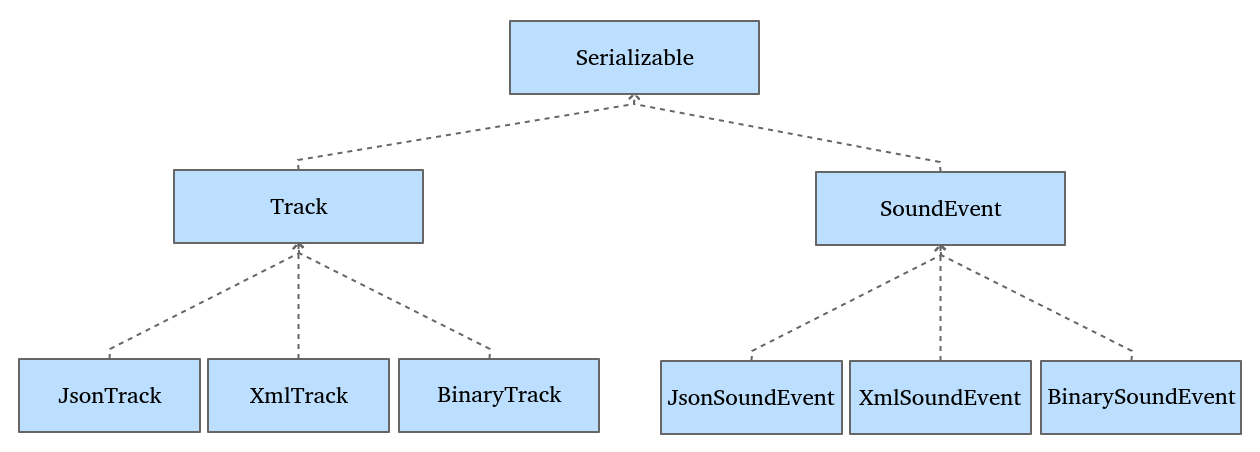Serializing objects in JSON format
The Track and SoundEvent classes can now be converted to a common Qt format, QVariant. We now need to write a Track (and its SoundEvent objects) class in a file with a text or a binary format. This example project allows you to handle all the formats. It will allow you to switch the saved file format in one line.
So where should we put the specific format code? That is the million-dollar question! One primary approach is shown in the following diagram:

In this proposition, the specific file format serialization code is inside a dedicated child class. Well, it works, but what would the hierarchy look like if we added two new file formats? Moreover, each time we add a new object to serialize, we have to create all these child classes to handle the different serialization file formats. This massive inheritance tree can quickly become a sticky mess. The code will be unmaintainable. You do not want to do that. So, here is where the bridge pattern can be a good...



































































